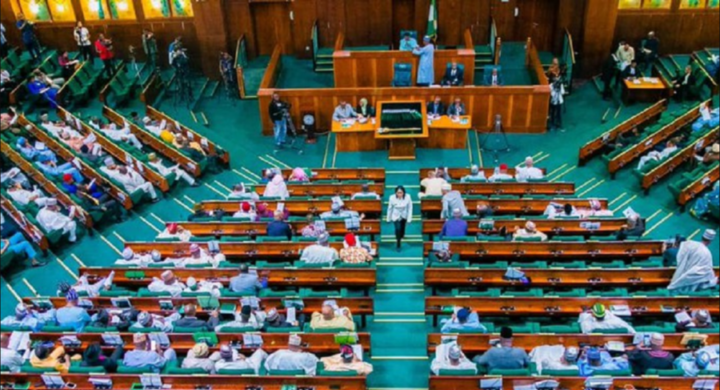The House of Representatives has summoned the Governor of the Central Bank of Nigeria (CBN) and chief executives of major deposit money banks over allegations of arbitrary and excessive charges imposed on customers’ accounts. This follows the adoption of a motion of urgent public importance during plenary, amid growing public concern over unexplained deductions by banks across the country.
The motion, sponsored by Hon. Tolani Shagaya, highlighted the rising frustration among Nigerians who continue to experience unauthorized or excessive charges in the form of card maintenance fees, SMS alerts, transfer commissions, account upkeep fees, and other deductions that are often not clearly explained. Shagaya noted that these charges have become a major source of financial strain for many households and small businesses already grappling with inflation and the high cost of living.

According to him, while banks are expected to deliver services within the confines of the CBN’s approved guidelines, several customers have complained of duplicate or hidden charges, raising questions about compliance and transparency. He described these practices as exploitative and warned that if unchecked, they could further erode public trust in Nigeria’s banking system.
In adopting the motion, the House mandated its Committee on Banking Regulations to summon the CBN Governor and the managing directors of the major commercial banks to appear before it. They are expected to provide a detailed explanation of the various charges levied on customers’ accounts and justify how such fees align with the regulatory framework set by the apex bank. The committee is to conduct a comprehensive investigation and submit its findings to the House within four weeks.
Lawmakers also urged the Central Bank to publish a simplified guide listing all approved bank charges in clear and accessible language. This, they argued, would ensure that customers are aware of what they are being charged for and help prevent arbitrary deductions. The House further called for the creation of an effective complaints mechanism to enable consumers to report and resolve grievances related to questionable bank debits promptly.
Members of the House expressed concern that despite existing CBN guidelines, banks have continued to impose charges beyond what is legally permissible. They emphasized that this trend undermines the objectives of financial inclusion and discourages citizens from using formal banking channels. Hon. Shagaya stated that the matter is particularly urgent because many customers are losing confidence in the financial system and could revert to cash-based transactions, which could negatively impact the country’s digital economy drive.
The House also called on the Federal Competition and Consumer Protection Commission (FCCPC) to collaborate with the CBN in monitoring the activities of banks and enforcing compliance with consumer protection laws. Legislators insisted that government agencies must take stronger action to ensure fair treatment of customers and maintain integrity within the financial system.
This is not the first time concerns over arbitrary bank charges have reached the National Assembly. In recent years, Nigerians have raised complaints over multiple deductions, including maintenance fees, transfer levies, and stamp duties, often without proper explanations. Although the CBN periodically reviews the “Guide to Bank Charges” to standardize and regulate fees, implementation has remained inconsistent. Many customers claim that even after certain charges were abolished or reduced, banks continued to apply them under different names.
Economic analysts have also weighed in, noting that the issue underscores broader concerns about transparency and consumer protection within Nigeria’s financial sector. They argue that while banks face rising operational costs due to inflation and regulatory requirements, such costs should not be transferred unfairly to customers. Instead, financial institutions should adopt efficiency-driven solutions that lower service costs and enhance customer satisfaction.
The CBN, for its part, has maintained that it continues to enforce consumer protection frameworks and sanction non-compliant institutions. However, critics contend that penalties have been insufficient to deter repeated offenses, with some banks reportedly generating billions annually from questionable deductions.
Lawmakers warned that continued exploitation of customers through unauthorized charges could lead to social backlash and loss of faith in the formal financial system. They insisted that Nigerians deserve transparency and accountability from institutions that handle their hard-earned money.
With the House resolution now in effect, the CBN Governor and bank executives are expected to appear before the Committee on Banking Regulations in the coming weeks. The outcome of the investigation could lead to new directives on transparency, potential refunds for affected customers, and stricter penalties for erring financial institutions.
The move is widely viewed as part of a broader push by the National Assembly to protect consumer rights and strengthen financial integrity in Nigeria’s banking sector. Many industry stakeholders hope that the process will not only expose the root causes of arbitrary charges but also lead to lasting reforms that restore public confidence in the system.
If effectively implemented, the inquiry could mark a turning point for Nigeria’s financial services sector—ensuring that banks operate with fairness, clarity, and accountability while upholding the principles of consumer protection that underpin a healthy and trusted economy.
Support InfoStride News' Credible Journalism: Only credible journalism can guarantee a fair, accountable and transparent society, including democracy and government. It involves a lot of efforts and money. We need your support. Click here to Donate
